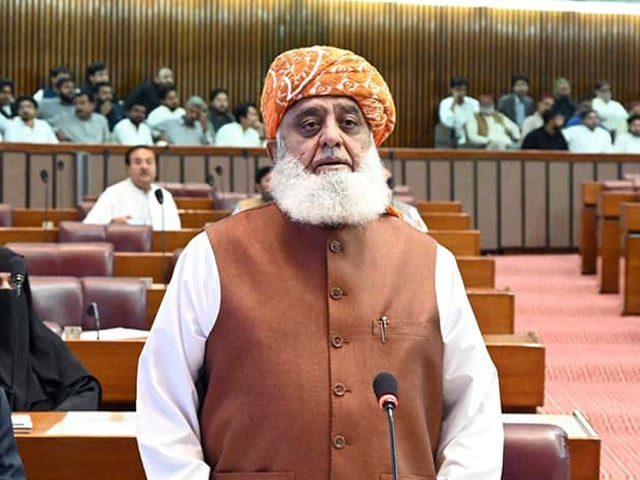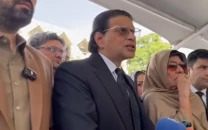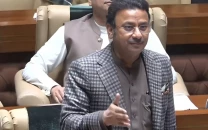Fazl vows to take madrassa bill issue to the streets
Despite being passed by both houses of parliament, the bill remains in limbo after the president raised objections.

Jamiat Ulema-e-Islam-Fazl (JUI-F) supremo Maulana Fazlur Rehman has firmly stated that the Madrassa Registration Bill has already become an act and his party will not accept any amendments to it.
Addressing the National Assembly session on Tuesday, the JUI-F chief said that if the bill is presented again without being recognised as an Act, it would be a violation of the constitution, Express News reported.
“The madrassa bill has already passed and become an act after the objections, raised by the president, were addressed and NA speaker made the necessary corrections. The bill has become law, though there is still an issue regarding the Gazette notification," Fazlur Rehman said during his speech.
Referring to a legal precedent set by former President Arif Alvi, who did not sign a bill, Maulana Fazlur Rehman explained that under such circumstances, the bill automatically becomes an act after 10 days. "The president no longer has the power to stop the bill once the 10-day period has passed," he added.
The JUI-F leader also criticised the government for what he sees as hindrances in the registration of religious schools (madrassas), claiming that the true issue lies in the government's disregard for the rights and privileges of parliament.
"For the last 24 years, madrassas have operated in accordance with the law and the constitution. We have never opposed modern education," he remarked. He further dismissed the idea of dividing seminaries into “religious” and “modern” categories, stating that students from madrasahs have excelled in national exams.
The JUI-F leader accused the bureaucracy and establishment of undermining the credibility of religious education. "Attempts to interfere with our curriculum will not be tolerated. Whether we register or not, our institutions will continue to operate," he declared.
"If our stance is ignored, we will resolve the matter outside the parliament," Fazl warned.
'No legislation is complete without President's signature'
Federal Law Minister Azam Nazeer Tarar has stated that no legislation is complete without the President's signature.
Speaking in the National Assembly, Law Minister Azam Nazeer Tarar emphasized that he holds a relationship of respect with Maulana Fazlur Rehman and his leader, adding that Pakistan’s founding figures passed the 1973 Constitution with collective wisdom.
He stated that the 26th amendment and the bill were passed by both houses of parliament. Article 50 of the Constitution defines the parliament, and the President is a part of this assembly. No legislation is completed without the President’s signature.
The law minister added that Article 75 stipulates that the President either approves the bill within ten days or sends it back to the Majlis-e-Shura.
He assured that the federal government is fully aware of its responsibilities and is committed to providing complete support to the provinces for maintaining law and order.
It should be noted that despite being passed by both houses of parliament, the bill remains in limbo after the president returned it with eight objections.
The Ittehad-e-Tanzeemat-e-Madaris on Monday demanded the immediate issuance of a gazette notification for the Madrassa Registration Bill. A meeting of the Ittehad-e-Tanzeemat-e-Madaris was held in Islamabad.
After the meeting, Rehman, accompanied by Mufti Taqi Usmani and Mufti Munib-ur-Rehman, addressed joint press conference. He said the madrassa bill was not controversial, as it had already been approved by Parliament.



















COMMENTS
Comments are moderated and generally will be posted if they are on-topic and not abusive.
For more information, please see our Comments FAQ